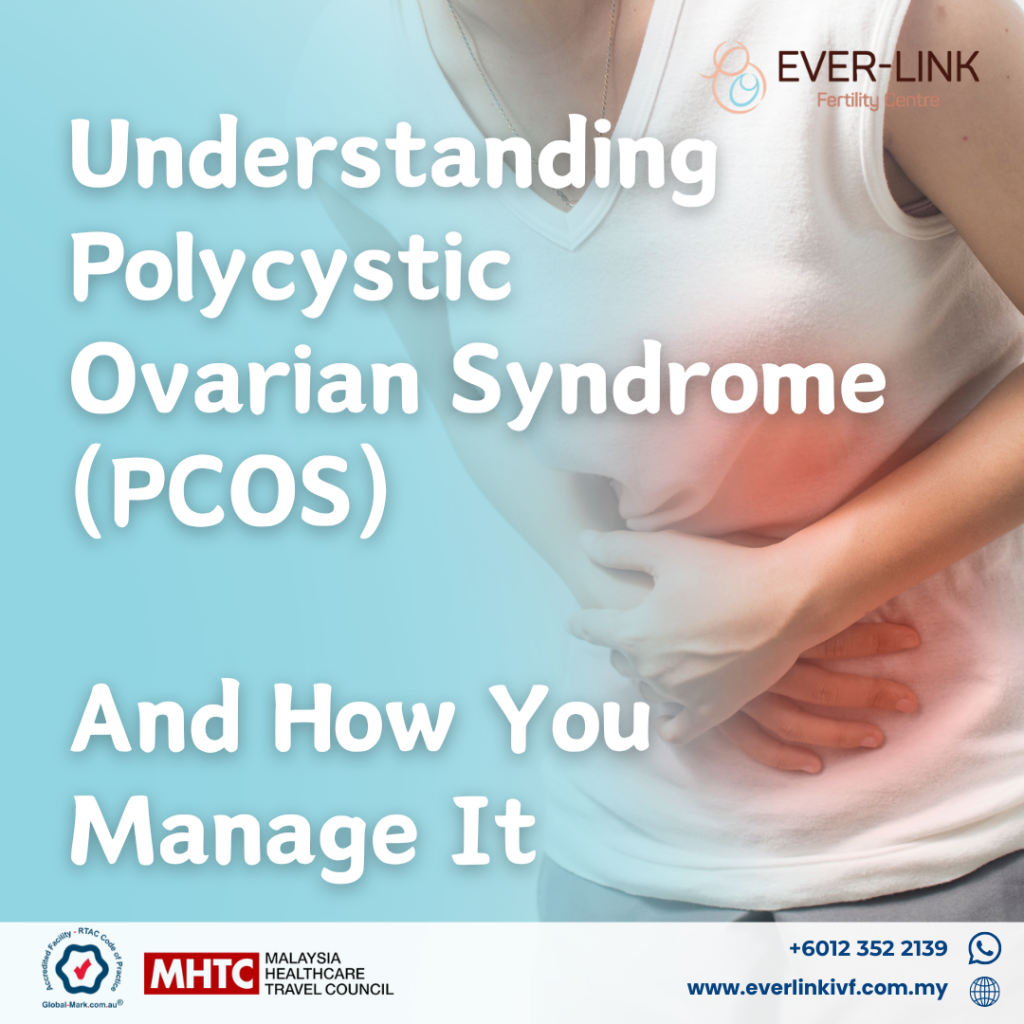
Do you experience irregular periods, with cycles that happen once every 2-3 months or even longer? Have you noticed excess hair growth on your chin, upper lip, or on your hands and feet? Or has a doctor ever told you that you have multiple cysts on your ovaries during an ultrasound scan?
If you answered yes to any of these questions, it’s possible you may have a condition known as polycystic ovarian syndrome (PCOS). But don’t worry, you’re not alone – PCOS is a common condition that affects many women, and with the right care, it can be managed.
What is PCOS?
Polycystic Ovarian Syndrome (PCOS) is a hormonal disorder that can cause a variety of symptoms, ranging from irregular periods to excess hair growth. It’s important to understand that PCOS is not something to be afraid of – with proper lifestyle changes, treatment, and medical guidance, women with PCOS can lead healthy lives.
The key issues caused by PCOS are:
- Irregular ovulation, which can lead to irregular periods and difficulties with conceiving.
- Hormonal imbalance, which can result in symptoms like acne, excessive hair growth (hirsutism), and thinning hair.
- Cysts on the ovaries, which are small fluid-filled sacs that develop on the ovaries, visible through an ultrasound scan.
How to Manage PCOS?
The good news is that PCOS is manageable. With a few lifestyle changes and the right support, you can control the symptoms and prevent long-term complications. One of the most important steps in managing PCOS is maintaining a balanced diet.
The Role of a Balanced Diet
A healthy diet rich in protein and fiber can help minimize the effects of PCOS. These nutrients regulate blood sugar levels and promote hormone balance. Focus on incorporating whole foods like:
- Lean proteins (chicken, fish, tofu, eggs)
- High-fiber foods (vegetables, fruits, whole grains)
- Healthy fats (avocado, nuts, seeds)
- Low glycemic index foods, such as legumes and quinoa, to help manage insulin resistance, which is common in women with PCOS.
Maintaining a healthy weight is also essential, as excess weight can exacerbate symptoms like irregular periods and insulin resistance.
When to Seek Help
If you’ve been trying to conceive for more than 6 months and you have symptoms of PCOS, it’s time to seek medical advice. PCOS can cause difficulties with ovulation, making it harder to get pregnant. A fertility specialist can offer guidance on how to address ovulation issues and improve your chances of conception.
You Don’t Have to Manage PCOS Alone
If you’re struggling with irregular periods, diet, or trying to conceive, don’t hesitate to reach out for help. Our team is here to support you with personalized treatment plans tailored to your needs. Whether you need assistance with managing your symptoms or are looking for fertility treatment options, we’re here to guide you through every step.
Conclusion
PCOS doesn’t have to control your life. With the right approach, you can manage the symptoms, improve your quality of life, and achieve your fertility goals. A balanced diet, regular check-ups, and medical support are key to keeping PCOS under control and preventing any further complications.
If you’re ready to take control of your health and fertility, come see us today. Let us help you create a plan that works for you.

